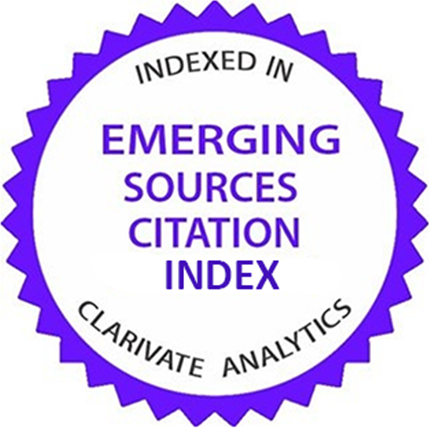Kounis syndrome in the era of COVID-19: pathophysiology, clinical challenges, and therapeutic approaches
Abstract
Kounis syndrome, first described in 1991, refers to allergic or hypersensitive reactions that result in acute coronary syndrome (ACS). In addition to SARS-CoV-2, this disease has enhanced our comprehension of viral infections, inflammatory reactions, and cardiovascular repercussions. The COVID-19 pandemic has exposed the occurrence of cardiac damage, arrhythmias, and thrombotic events that are associated to the SARS-CoV-2 virus, thereby making the understanding of their development more complex. This research explores the complex correlation between Kounis syndrome and COVID-19, encompassing the phenomena of cytokine storms and endothelial dysfunction. Diagnosing Kounis syndrome in the context of COVID-19 presents challenges, nevertheless, it is imperative to distinguish it from other cardiovascular disorders. The identification of risk factors and predisposing situations that can exacerbate Kounis syndrome in COVID-19 patients is highlighted, with a particular focus on patient assessment. The care of Kounis syndrome in COVID-19 necessitates a multidisciplinary strategy that involves collaboration among cardiologists, allergists, and other specialists. Possible therapies encompass epinephrine, antihistamines, corticosteroids, cardiovascular interventions, as well as long-term surveillance and measures to reduce risk. Additional investigation should include epidemiological enquiries, experimental frameworks, and advancements in diagnostic and therapeutic approaches. Comprehending the connection between viral infections and coronary syndromes caused by allergies is crucial for clinical practice and the well-being of patients. This review explores the neurobiological similarities and clinical implications of Kounis syndrome and COVID-19, aiming to enhance comprehension and treatment of this intricate clinical scenario.
2. Nishiga M, Wang DW, Han Y, Lewis DB, Wu JC. COVID-19 and cardiovascular disease: from basic mechanisms to clinical perspectives. Nature reviews Cardiology. 2020;17(9):543-58.
3. Driggin E, Madhavan MV, Bikdeli B, Chuich T, Laracy J, Biondi-Zoccai G, et al. Cardiovascular considerations for patients, health care workers, and health systems during the COVID-19 pandemic. J Am Coll Cardiol. 2020;75(18):2352-71.
4. Babapoor-Farrokhran S, Gill D, Walker J, Rasekhi RT, Bozorgnia B, Amanullah A. Myocardial injury and COVID-19: possible mechanisms. Life Sci. 2020;253:117723.
5. Kounis NG. Kounis syndrome (allergic angina and allergic myocardial infarction): a natural paradigm? Int J Cardiol. 2006;110(1):7-14.
6. Guzik TJ, Mohiddin SA, Dimarco A, Patel V, Savvatis K, Marelli-Berg FM, et al. COVID-19 and the cardiovascular system: implications for risk assessment, diagnosis, and treatment options. Cardiovasc Res. 2020;116(10):1666-87.
7. Yang J, Zheng Y, Gou X, et al. Prevalence of comorbidities and its effects in patients infected with SARS-CoV-2: a systematic review and meta-analysis. Int J Infect Dis. 2020;94:91-5..
8. Kounis NG. Coronary hypersensitivity disorder: the Kounis syndrome. Clin Ther. 2013;35(5):563-71.
9. Amsterdam EA, Wenger NK, Brindis RG, Casey DE, Jr., Ganiats TG, Holmes DR, Jr., et al. 2014 AHA/ACC Guideline for the management of patients with non-ST-elevation acute coronary syndromes: a report of the American College of Cardiology/American Heart Association Task Force on Practice Guidelines. J Am Coll Cardiol. 2014;64(24):e139-e228.
10. Zheng YY, Ma YT, Zhang JY, Xie X. COVID-19 and the cardiovascular system. Nat Rev Cardiol. 2020;17(5):259-260.
11. Bikdeli B, Madhavan MV, Jimenez D, Chuich T, Dreyfus I, Driggin E, et al. COVID-19 and thrombotic or thromboembolic disease: implications for prevention, antithrombotic therapy, and follow-up: JACC State-of-the-Art Review. J Am Coll Cardiol. 2020;75(23):2950-73.
12. Chen C, Zhou Y, Wang DW. SARS-CoV-2: a potential novel etiology of fulminant myocarditis. Herz. 2020;45(3):230-2.
13. Williamson EJ, Walker AJ, Bhaskaran K, Bacon S, Bates C, Morton CE, et al. Factors associated with COVID-19-related death using OpenSAFELY. Nature. 2020;584(7821):430-6.
14. Memon S, Chhabra L, Masrur S, Parker MW. Allergic acute coronary syndrome (Kounis syndrome). Proc (Bayl Univ Med Cent). 2015;28(3):358-62.
15. Sahraian S, Eshaghian S, Houshmand G, Emamzadeh A, Akbari R. Kounis syndrome in a patient with COVID-19: a case report. J Investig Med High Impact Case Rep. 2021;9:232470962110085.
16. Zhao C, Lei R, Liu S, Zhao M. Kounis syndrome following COVID-19 vaccination: clinical manifestations, mechanisms and management. Hum Vaccin Immunother. 2024;20(1):2365496. 17. Paknahad MH, Yancheshmeh FB, Soleimani A. Cardiovascular complications of COVID-19 vaccines: a review of case-report and case-series studies. Heart & Lung. 2023;59:173-80.
18. Wang L, Tang C. Targeting platelet in atherosclerosis plaque formation: current knowledge and future perspectives. International journal of molecular sciences. 2020;21(24):9760.
| Files | ||
| Issue | Vol 8 No 4 (2024): Autumn (October) | |
| Section | Review article | |
| DOI | 10.18502/fem.v8i4.17084 | |
| Keywords | ||
| Acute Coronary Syndrome Allergic Reactions COVID-19 Inflammatory Mediators Kounis Syndrome | ||
| Rights and permissions | |

|
This work is licensed under a Creative Commons Attribution-NonCommercial 4.0 International License. |










